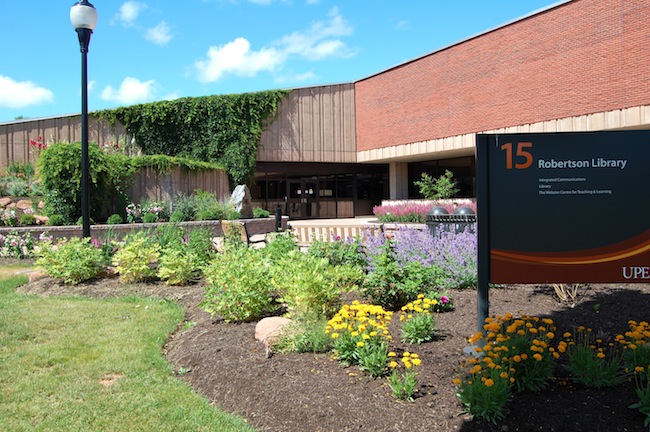By: Fallon Mawhinney
International students comprise a significant proportion of students at UPEI. For those who arrive not fluent in English, their first experience of UPEI usually comes through the English Academic Placement program, or EAP. We have already reported on how the EAP program at UPEI is changing its policy to more accurately meet the needs of incoming international and English as an Additional Language students. However, after the adoption of a new policy by the Student Union, if it can be lobbied successfully to university administration, UPEI students may see another change coming to the EAP program.
The English Academic Placement program, as it has been in the past, is a prerequisite for students entering UPEI, and depending on the English skill level of each student, the program may be tailored from part-time to full-time. The successful completion of the program, which can take a year or more to do, is required before students can take a full slate of credit courses. Â However, while international students still have to pay for the program before going on to their degree, credit has not been traditionally been given for completing EAP courses.
Cathy Gillan, the International Development Director at UPEI’s International Relations Office, wrote a feasibility study back in 2003  after identifying this issue, and began to work towards the possibility of a university credit for EAP courses.
“Credit is given for what is valued,†says Gillan. At UPEI, she explains, English proficiency is a highly valued skill, and not one that comes easily to students who speak English as an additional language. Gillan felt that the EAP program should reflect the hard work of its students via credited courses. The International Relations department, together with the driving force of the UPEI Student Union, has
John Rix, Vice President Academic and External at the UPEI Student Union, commented recently on how the changes will look. He explained how the EAP program is is divided into levels. “Students enrolled in levels 1-5 would be unable to [take] credited university classes, while students enrolled in levels 6-7 could begin to take credited university classes. The Student Union external policy on this topic asks that the University award credit upon the completion of EAP that will count towards their overall credit count for their degree.â€
While the SU continues to push for the awarding of credit worth at least six semester hours for the completion of the EAP program as a whole, UPEI has already developed several higher-level EAP courses which do count for credit: University 100 (2 special sections comprised of 50% domestic and 50% international students), Bus 285: Canadian Business Culture, and Modern Languages 209A and B: Writing Skills for English Language Learners. Canadian Business Culture is designed for international business students as a basic education in the Canadian market, while Writing Skills for English Language Learners and University 100 are more general linguistic- and writing-based courses aimed at students in other faculties.
Ya Chen, a third year English Literature student from China describes her experience taking Modern Languages 209: “The course includes a very detailed and carefully-designed syllabus, which is extremely helpful for international students.†She contrasts that experience to taking English 101, a basic writing course offered to both English native speakers and English as an additional language students: “While in Eng101 class, though my professor makes it as clear as possible, [but] since most of the class are English speakers, it is easy to get lost in class sometimes. But both courses are very very very helpful to me, as writing is always a hard part for international student.â€
Chen’s remarks mirror Gillan’s goal for the program. Gillan says she finds that students have a higher confidence level after taking the new EAP courses, and that students are more motivated to do well when their courses count as credits. Additionally, receiving credit for the EAP program helps international students complete a degree faster, as some students are worried about high costs of tuition and living expenses. Gillan fully credits the UPEI Student Union for promoting the idea of credited EAP courses, with the full support of the International Relations office.
